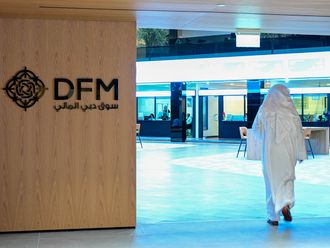The GCC economies, unlike elsewhere in the Arab region, grow naturally and away from dramatic changes, upheavals and instability. It is coupled with the rapid development of the legislative and legal structures, following in the footsteps of developed economies, to ensure the rights of workers and investors.
Such an approach adopted by the GCC must yield many positive results. Although it is still in the development phase and in need of further actions for the completion of infrastructure at all levels, including on the legislative side through regulations commensurate with economic progress achieved over the past few decades.
Among the most notable is the impressive progress achieved by women in the Gulf, especially in the job market. It has led to a surge in the number of working women in Qatar, so much so they have exceeded their male counterparts for the first time and make up 52 per cent of the workforce. The strong participation of women in the job market will definitely yield significant economic and social results in years to come.
The picture is similar in the job markets in the UAE, Kuwait, Bahrain and Oman, which have all made remarkable progress in promoting women’s employment and giving them confidence and job opportunities. For example, the UAE Cabinet includes the largest percentage of women in the region. The labour market in Saudi Arabia is still in need of extra actions to promote women’s employment in many sectors that remain exclusively held by men. In addition there is the need to remove some of the socially imposed restrictions that hinder such a development approach.
In general, the ratio of women’s participation in the GCC job market has reached percentages in the economically advanced countries, which is an achievement underlying the immense efforts made and the openness in the Gulf community. It is an approach which appreciates women’s work and provides them with opportunities to contribute to the development process in their countries.
In fact, GCC women have a historical legacy in working under harsh conditions in the pre-oil era during which times they were primarily responsible for the management of economic affairs in their homes. Women worked in agriculture, trade, fishing and crafts, all of which were the main sources of production alongside the pearl trade, in addition to managing the family affairs.
With the discovery of oil, the economic role of Gulf women declined due to sufficiency and abundance resulting from the flow of oil wealth and rapid changes that created jobs that require skills not acquired by Gulf women for many years due to some social and cultural factors.
Among the reasons that did not enable women to be empowered with skills is that some occupations were limited to men only.
Due to economic and social factors, the GCC countries have made great efforts to promote women’s employment which has yielded results beyond expectations. This emphasizes that the Gulf communities are moving in the right direction, to create economies and advanced societies that provide opportunities for women and men alike.
In this regard, the GCC countries can take further action to move forward. At present, women’s participation at leading institutions is still weak as it does not surpass 10 per cent. A “quota” can be imposed for the number of women on the boards of public and private organisations and companies.
In parallel, the culture of consumption and savings is poor in the GCC; consistency between them can be enhanced by the positive aspects of the work of GCC citizens, especially women.
In an environment of lavish consumption and a poor culture of saving, it is imperative to create a true relationship between them so as to contribute to raising the performance of the local job market.
Therefore, important economic consequences are expected to be generated as a result from women’s extensive engagement in work. Among these results is curbing demographic imbalance, reducing the imbalance in the local job market, improving the living standards of Gulf families and increasing savings rates.
By doing so, this will contribute to pumping more money into economic sectors and increasing growth rates in the GCC.











